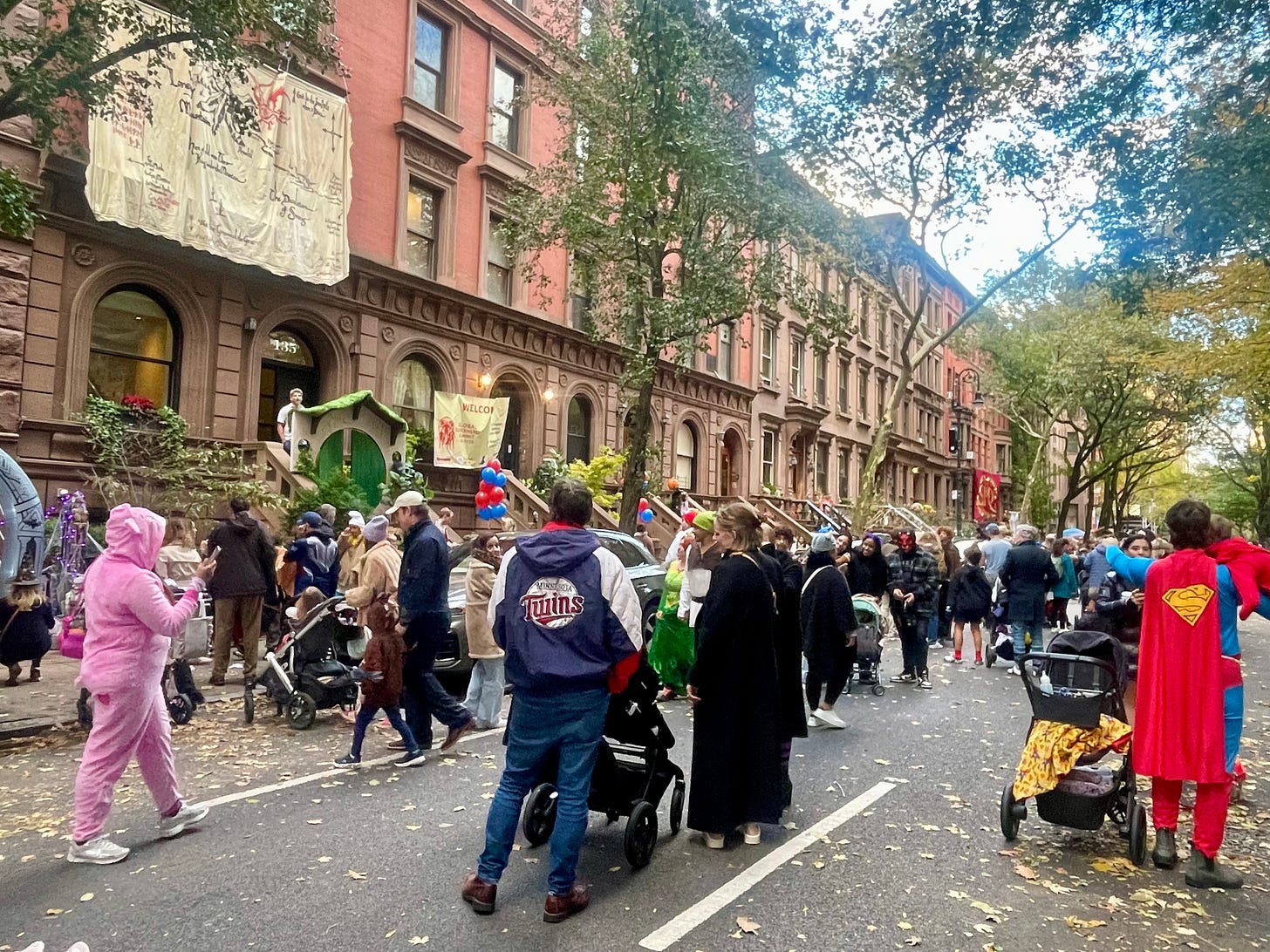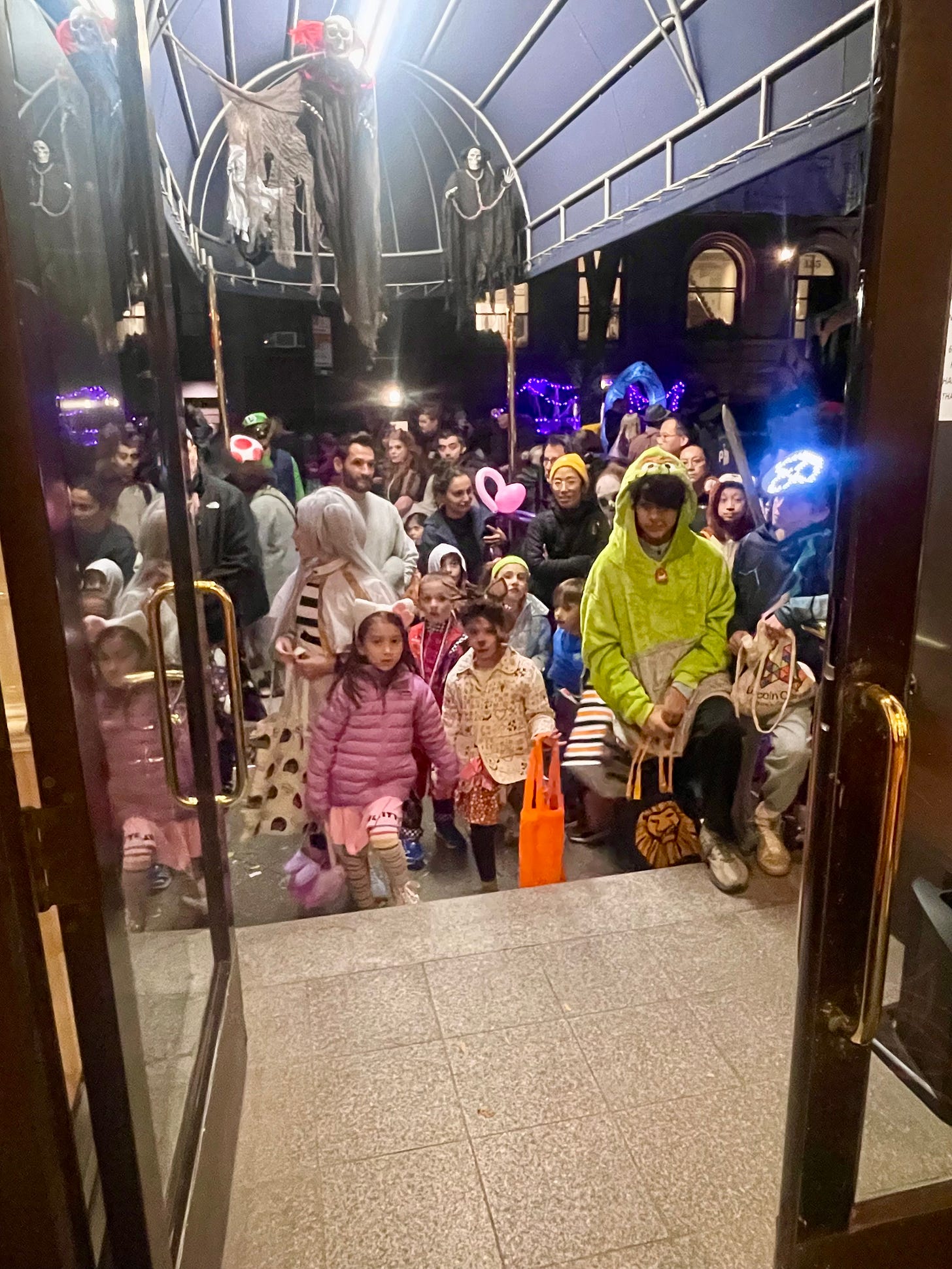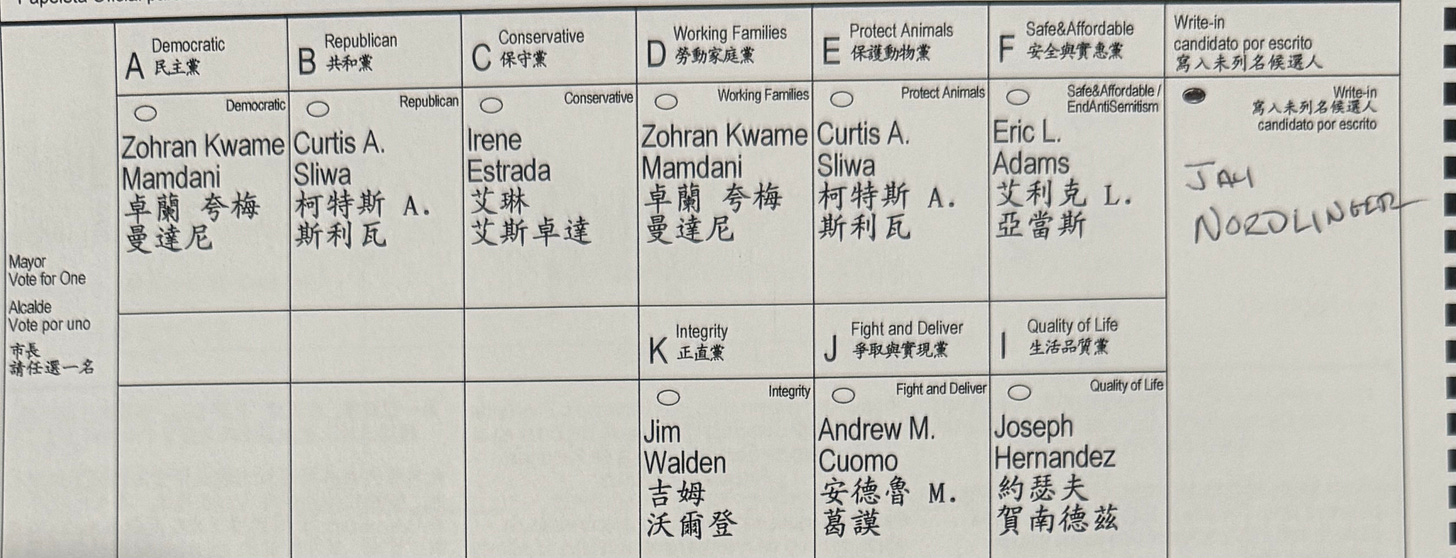No More a Haven, &c.
On America and refugees; the British royal family and Epstein; populism and plutocracy; the joys of the tuba; and more
We all have a different conception of what America means, what our country is for. That has been a theme of mine lately. That has been a theme in America for hundreds of years. More than one column, I have titled, “Who Are We? Cont.”
A headline from Thursday reads, “Trump administration cuts refugee admissions to record low, gives priority to white South Africans.” That news report is here.
So, who are we? What do we stand for in the world? What do we want to be?
On the struggle goes ...
***
The British royal family has, in effect, defenestrated Prince Andrew—who is no longer “Prince,” having been stripped of that title. I am impressed. I was beginning to think there was no accountability in the world—certainly no accountability for wrongdoing in the Epstein matter. And now Queen Elizabeth’s second son has paid a steep price.
The contrast with us Americans is stark.
***
“The forcible transfer and ‘russification’ of Ukrainian children shows evidence of genocide, says PACE.” That article is here. “PACE” stands for “Parliamentary Assembly of the Council of Europe.”
On Twitter, someone said, “The lack of global outrage is beyond comprehension.” I believe I comprehend it. Let me suggest four reasons.
(1) Sympathy for Putin and the authoritarian model of government.
(2) Antipathy to Ukraine and its desire for independence and democracy.
(3) An avalanche of news, limiting attention to any one thing.
(4) A desire not to know, if knowing makes you think, “We ought to do something about it.”
***
You may have seen pictures of Trump’s “Gatsby”-themed party at Mar-a-Lago. A display of opulence, and maybe even decadence. Fine with me. I am pro-wealth (as long as people have an equal shot in a free economy). And I think people should do what they like (as long as they’re obeying the law and not hurting anyone).
But I have to point out: these guys are strange “populists.” (Sometimes, “plutocrats” seems the more appropriate designation.)
***
Stay on that theme for a minute: On a Sunday-morning talk show, Treasury secretary Scott Bessent was being questioned about tariffs and their effects. He said, “In case you don’t know it, I’m actually a soybean farmer. So, I have felt this pain too.”
True, he owns farmland, along with other things. Does that make him a soybean farmer?
I’m fairly relaxed about others’ self-designations. I can tell you this, however: If a Democratic hedge-fund manager referred to himself as a “soybean farmer,” the populist Right would have a fit—understandably.
***
An article in the New York Times was headed, “Carney Says He Apologized to Trump Over Ad Reviving Reagan’s Tariff Criticism.” Patrick Chovanec tweeted, “I know it’s instinctive, but don’t apologize, Canada.”
I loved that tweet. Canadians say “I’m sorry” at the drop of a hat (and they say it with their special pronunication of “sorry”—which rhymes with “lorry”).
This would be a good time to share a letter with you, from our reader Alan Kerrick. He writes about various subjects, including ... well, listen:
I recently spent a day in Vancouver (British Columbia, not Washington). As I was walking through the city, I saw a city bus whose front display said, “Out of Service.” Okay, we’ve all seen that before.
But when I looked back, I realized that the display was alternating between two lines: “Out of Service” and “Sorry.”
Isn’t that Canadian?
Very.
***
In a column a week or two ago, I noted the passing, at 103, of C. N. Yang, the great, and Nobel-winning, physicist. Let me give you some more of Mr. Kerrick’s letter:
In August 1984, I packed up my new B.S. in physics from UC-Riverside and headed to the State University of New York at Stony Brook. Nothing had been promised to us first-year grad students, but a rumor was spreading—and it turned out to be true: Professor Yang would teach the first semester of graduate quantum mechanics!
... It was a true privilege to sit in class with him twice a week for a semester. ... I learned immense amounts from Professor Yang about how to think about physics. There’s not anything I can reduce to a pithy saying or a list of talking points. But I believe that this time had a great effect on my technical worldview.
I spent my career in R&D for the Defense Department rather than in pure physics, but the influence of this one semester helped me through the problems I was trying to tackle.
Gratifying.
***
By now, I’m sure, you’ve read about the recent controversy at the Heritage Foundation. I don’t have much to add to columns by Jonah Goldberg (here), Nick Catoggio (here), and others. Kevin D. Williamson will contribute a humdinger, you can bet on it.
But maybe I can offer a few jottings.
Institutions ought to change names when they change character. Otherwise, things are confusing. The Heritage Foundation still calls itself “the Heritage Foundation.” The Claremont Institute still calls itself “the Claremont Institute.” Marco Rubio still calls himself “Marco Rubio.”
I could go on.
For years, I have spoken of “the Heritage diaspora.” Conservatives who once worked at the Heritage Foundation, before its Trumpification and Orbánization, are scattered hither and yon, continuing to defend their principles and ideals, in any way they can.
This diaspora will get larger, I suspect.
If you’re drawing a line at Nazis—and their fellow carver-up, Stalin—hurray. But, man: what a low bar. On to Putin, maybe ...
***
Arvo Pärt was anti-Soviet. And he is anti-Putin (as anyone anti-Soviet must be). He is an Estonian composer, who last month turned 90. He is the most-performed living composer (although, some years, this title goes to John Williams). To mark his 90th birthday, Carnegie Hall hosted two concerts of his music.
I have written about Pärt for The Next Move, the publication of the Renew Democracy Initiative: here. If you are not yet familiar with him, you will enjoy getting to know him.
***
“The tuba is a funny instrument,” says John Check, in an article for the Wall Street Journal. Mr. Check is a professor of music at the University of Central Missouri (and a reader of ours). His piece is delightful.
Couple more sentences:
... the tuba is a source of delight for those who are stimulated by its sound; for those who play it, it’s a source of satisfaction and fulfillment. Take my word for it: I own 10 tubas and have had more fun playing them than should be legal.
So, if you’re looking for a hobby ...
***
One more music item? This afternoon, about 12:30, I’m walking past a church, whose service is concluding. The organist is playing the Widor Toccata (the most famous piece for organ, besides Bach’s Toccata and Fugue in D minor, BWV 565—if that piece was, in fact, written by Bach, a debate we need not enter now). I stood by an open door and listened.
The Toccata was capably played. But, in the final measure, the organist played one F-major chord, instead of two—and CMW (Charles-Marie Widor) prescribed two.
WTF?
***
Halloween is a big deal on my block. Here was the scene about 4:30 p.m., before the party really started:
Here is a colorful horde, waiting to invade:
And here is trick-or-treating in full swing:
***
A young friend of mine sent me his ballot in the New York mayoral election. I swear, I am touched, and honored.
Thank you for joining me, my friends. If you can subscribe, great. Regardless, I appreciate you, muchly.
Later on.








I’m not wild about the famous Widor Toccata — but still, when we were visiting Paris seven years ago, we made a point to be in Eglise Saint-Sulpice on Sunday morning (even though we’re not Catholic) to hear the organ on which Widor played for so many years. It was as much an organ recital as a worship service! The incumbent organist included a Widor piece among his selections that morning.
It was really cold that February day. It was so cold, walking around after the service, that we took refuge in the small Eugene
Delacroix Museum to warm up. We had seen Delacroix murals in the Saint-Sulpice church itself.
Canadians really do apologize a lot, and this Canadian is true to type. My apologies are sincere! I don’t want to have inconvenienced my fellow shoppers, or park walkers, or cyclists, or church goers, or transit takers. I never want to be the reason someone felt slighted or interfered with, however inadvertent my action may have been. I need my fellow man, and he needs me, and I want to show him the courtesy that it behooves me to show him. But I understand the point about Carney. Our Prime Minister has an unenviable job at this moment. I did not vote for him, but I certainly wish him every success now that the mantle of leadership is his to bear up under. I want to live in peace and prosperity, and in harmony and cooperation with my American neighbours. Come, Friends! Let’s get our issues sorted! You work from your side and we’ll work from ours. The status quo is not anything to be proud of.